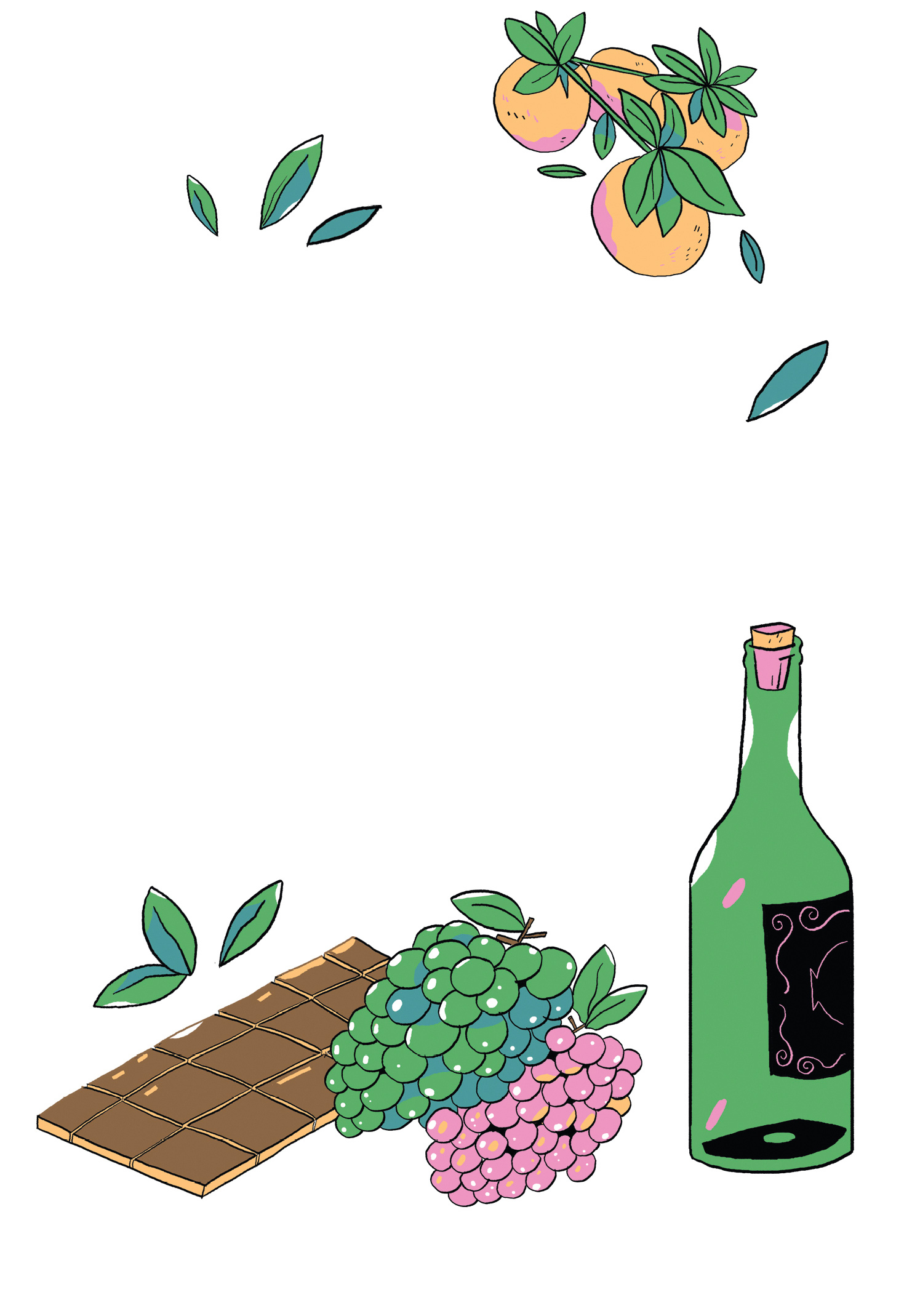RULE 53
Coffee is a gateway drug.

What looks like a brown cup of liquid to someone else becomes a Technicolor spectrum of flavors and aromas to a coffee lover.
Learning to love coffee is easy and delicious and offers a wide range of benefits, some expected, others more subtle. But when you get into thinking about some of the nuance behind coffee—the flavor spectrum and how we discuss it, coffee’s journey around the world, and the artisans involved in every step of the process—you realize that there’s something bigger happening. What looks like a brown cup of liquid to someone else becomes a Technicolor spectrum of flavors and aromas to a coffee lover, a complex expression of a thousand little variables influencing flavor. It is simultaneously both easy to love and endlessly complex, a deep dive you might spend your life happily exploring.
But along the way to becoming a coffee lover, you’re subconsciously setting your brain and palate up for sensory appreciation. Loving coffee is a gateway for falling in love with the flavors and expressions of a wide range of other delicious artisan products. Maybe you’re particularly taken with how coffee can express a taste of place? Take that love and apply it to a product like cheese, which, in the hands of small cheesemakers working with heirloom breeds of cows, goats, and sheep, can so distinctly express taste of place and local traditions. Or maybe you’re finding a lot of resonance in coffee’s delicious utilitarianism, a mellow caffeine buzz that tastes great? You need to drink more tea, which has its own incredible world of cultivation and processing practices that yield a wide range of flavors and expressions. Access to remarkable small-lot teas in America right now has never been better. Brands like Kilogram Tea (Chicago), Song Tea (San Francisco), and Spirit Tea (Chicago) are just a few of the new leaders in high-quality tea in America. If you love good coffee, you’ll love what they’re doing in the realm of Camelia sinensis. We could go on, but this is quite literally its own book.
For us, coffee has most especially been a gateway into wine, which as a beverage offers the same satisfaction to a map nerd, the same social convivial aspect, and a similar bottomless depth of knowledge to obtain and explore. It’s also, like coffee, possible to enjoy wine quite happily without putting heaps of thought into the stuff, and there’s no one way to do it. But we know for sure that our years of learning about coffee, drinking the stuff endlessly (both for fun and for work), and writing about it have primed us to be wine lovers. If you can appreciate the subtle nuance between a Colombia Cerro Azul gesha and a bourbon from Aida Batlle’s famed Finca Kilimanjaro in El Salvador, the obvious and ringing flavor differences between a Syrah and a Riesling will womp you right on the nose.
Loving coffee is a gateway to loving so many other delicious things in our world. After all, humankind cannot live on coffee alone. (Though we’ve tried.)
